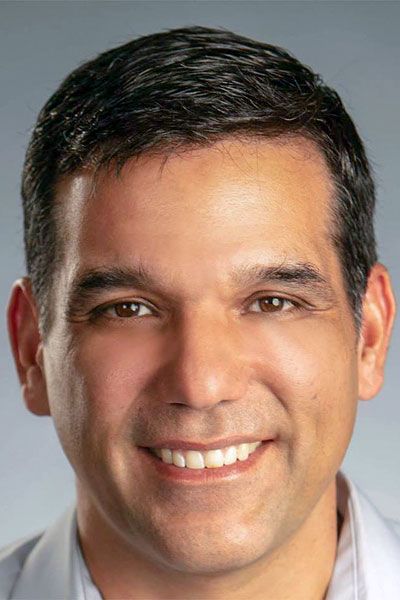Sal Peralta: Kotek initiative fuels hope on homelessness in Oregon

The rise in homelessness in the United States, especially since the housing crisis of 2008, is one of the most frustrating issues I have ever had to work on as a policymaker.
In part that’s due to how difficult it seems to resolve, in part due to what it says about our country.
As a child, I remember visiting the border between Mexico and Texas. The way I knew we were near the border was the growing number of houses built out of cardboard, corrugated metal and tarps, and appearing devoid of services. I had never seen poverty like that before, and I never imagined I would see that kind of poverty prevalent in American cities 40 years later.
Yet the poverty I’m describing fits hand-in-glove with what I’m seeing today in corners of the wealthiest places in America.
The seven states with the highest home prices in America — Hawaii, California, New York, Washington, Massachusetts, Oregon and Colorado — are all in the top 10 in terms of homeless residents. Across the board, the places in America with the highest property values are also the places with the highest homelessness rates.
People point to addiction and mental illness as drivers of homelessness, and they are. But if they were the sole drivers, then West Virginia, which has four times the drug overdose mortality rate of Oregon, should have a comparable or greater issue with homelessness.
But it doesn’t. The reason is that the average home price stands at $143,000 in West Virginia, vs. $474,000 in Oregon.
High homeless rates prevail even in rural parts of Oregon like ours.
The rural portion of Oregon — everywhere outside the Bend, Eugene, Medford, Salem and Portland metro areas — had the fourth largest total number of individuals experiencing homelessness of any rural region in the United States. It stands second in the nation among rural regions in unaccompanied minors experiencing homelessness.
Meanwhile, Oregon leads the nation in families with children experiencing homelessness. And on any given night here in McMinnville, 300 students enrolled in local public schools have no fixed place to stay.
Our region also had the third largest number of chronically homeless people of any rural region in the country.
This is the most visible kind of homelessness. It is also the one that’s most difficult to address because it is often tied to aging, physical disabilities, medical disabilities, mental health issues, addictions and so forth.
Against that staggering array of ills, I’d like to leave readers with a few reasons for optimism and a few modest suggestions for state, county and local policymakers.
For the first time since I’ve lived in Oregon, we have a governor who’s making a sincere effort to understand the scale of the problem and putting forward serious policy proposals to address it.
Tina Kotek was the first elected official to respond to my public request that our leaders declare a homelessness state of emergency, an act she repeated after being elected governor. And she followed through with hundreds of millions in crisis funding from the legislature.
Next, I think we should be proud of the steps that local providers like YCAP, Providence, the Yamhill County Housing Authority, Lutheran Community Services and other providers have taken to helping put us on the right path. Those stakeholders and others played a role in one or more of the following projects:
Project Turnkey, funded through the bi-partisan efforts of state leaders like then-House Speaker Tina Kotek and then-State Rep. Ron Noble, converted a vacant hotel into transitional housing in McMinnville. The local project became the poster child for the program, which helped 75 percent of participants transition into permanent housing.
The facility continues to provide supportive housing today through Providence.
Another new resource that Mayor Remy Drabkin and other stakeholders have been able to achieve, again with the support of Gov. Kotek, is the additional funding needed for the construction and operational funding for a 30-bed crisis navigation center and low-barrier shelter providing supportive treatment for a wider segment of the community currently experiencing homelessness.
In terms of affordable housing, the most important project is the new Stratus Village, developed by the Housing Authority and partners like the Confederated Tribes of Grand Ronde. It will add 175 new units of affordable housing to the city roster.
This is the largest affordable housing project ever seen through to fruition in Yamhill County.
Many people in our community may not be aware that the large number of RV campers we have in McMinnville is the direct result of the 2016 closure of Mulkey’s RV Park, which was authorized by a previous board of commissioners to facilitate a proposed landfill expansion.
The board did not seek alternatives to replace the hundreds of spots that were available there. As a result, a large number of RV owners were ushered out onto the street with no lawful place to go.
Going forward, I believe we need a permanent lawful place for older RVs to camp, other than public streets and parks. Providing a secure place for RVs to lawfully access services would be far less costly than other housing options and would be a better long-term solution than requiring people to keep moving to evade enforcement.
Finally, I would encourage the county board of commissioners to re-evaluate the decision of a previous board to remain in Oregon’s rural continuum of care for homelessness services rather than team up with neighboring Marion and Polk counties.
Remaining in the rural continuum has made it harder for the county, the city of McMinnville and other cities in the region to access crucial funding for homeless issues.
Joining the Marion-Polk alliance would, in addition to making it easier to access federal and state dollars, allow us to send some of our hardest cases to Salem for treatment. It would also make it easier for people who have Section 8 vouchers but cannot find housing here to redeem those vouchers in Salem, Independence or other communities, where housing might be more prevalent at lower cost.
The problems we are facing are bigger than any one community. But by understanding the drivers of these problems, and the potential solutions, we can make steady progress toward long-term solutions.
Guest writer Sal Peralta harbors an enduring interest in public policy, reflected in a long record of public involvement. He helped found the Independent Party of Oregon and has long served as party secretary. He ran unsuccessfully for state representative and county commissioner before winning appointment, and later election, to the McMinnville City Council, His passions include history, music and native plants.













Comments